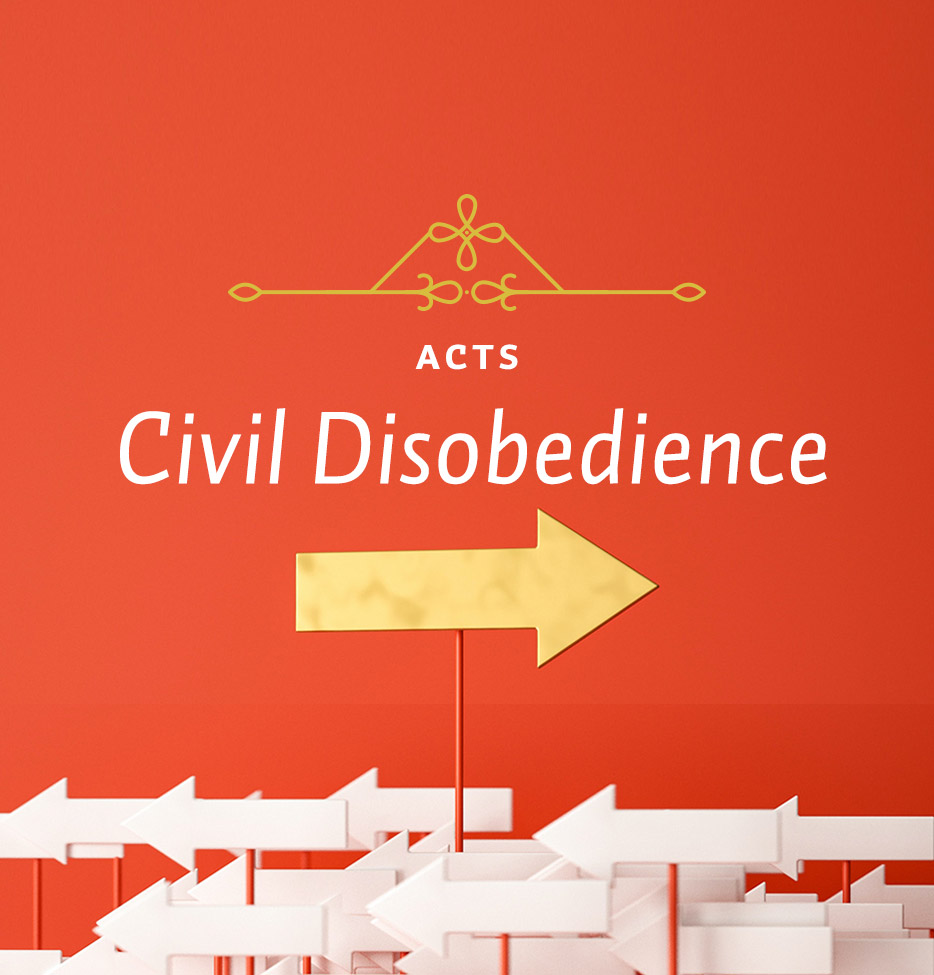I think the leaders were also a bit dismayed. The text does not use the word “dismayed.” But I think that was part of it because it says that they took note that they had been with Jesus. Maybe they did not know this at first. One would think they would know it. But as we read the chapter, it sounds as if this dawned upon them slowly, perhaps during the interrogation. Perhaps, as they looked at them intently, they began to say, “Haven’t we seen these men before? Aren’t these two of those who were hanging around with Jesus? What a troublemaker Jesus was! He was unschooled, too. He didn’t know the law. He misinterpreted it all the time. He had to be done away with. Such people always have to be done away with. But now here are His disciples, acting like Him. What are we going to do about it?”
They did what the state always does. They resorted to naked authority. They simply insisted, “Don’t do it anymore.”
If you look at this response grammatically, you find something that you would not normally find in good writing. Verse 16 says, “Everybody living in Jerusalem knows they have done an outstanding miracle, and we cannot deny it.” In that sentence, “it” stands for the miracle. But then they go on to say, “But to stop this thing [the Greek text has ‘it’ again] from spreading any further among the people, we must warn these men to speak no longer to anyone in this name.” What does that “it” or “thing” refer to? Normally, you would take “it” to refer to the last main idea or noun, and that would be the miracle. They would be wanting to stop the miracle from spreading.
But that is not what they were thinking of. People were talking about the miracle. That news was spreading. But what these rulers were really concerned about was the Gospel, the preaching of Jesus and the resurrection. At this point they hardly knew what it was they were trying to repress. So they just referred to it as “it.” “We don’t want ‘it’ getting around anymore. Let’s contain ‘it.’ Let’s squelch ‘it’ right now.” The words are almost humorous.
They brought the disciples back in. I suppose they lined up, put on their clerical vestments to look as solemnly official as possible. Then in very stern tones, they said, “Don’t do it anymore.”
The Sanhedrin did not have the power they had in earlier days because they were a subject nation at this point. The ultimate power was Rome’s. But they had worked out an arrangement. They would support Rome if Rome would support them. When they made a pronouncement that concerned local affairs—the kind of thing Rome was not really concerned about—Rome would back them up. Therefore, when they told the disciples, “If you do this again, you are going to have to answer to us. We’ll arrest you; we’ll haul you in,” that is exactly what they were able to do.
Peter and John went on preaching, of course. But when we come to the fifth chapter we find that the authorities hauled them in again. They said, “Didn’t we tell you not to do this?”
The disciples replied, “Well, yes, that’s true. You did. But we told you that we were going to obey God rather than you. And that is what we are doing.”
“We’ll throw you in jail then,” they said, and they did. It took God to rescue them from the prison. This is always the way the state operates. There really is no other power at the state’s disposal. So what is it that actually changes the world? The only thing that ever really changes the world is not laws enforced by arms, but moral renewal in the lives of normal citizens. And that comes from God alone. That is why the only profound changes that come into the world are in periods of revival, as God works in His people in such a powerful way that they are changed. Then because they have been changed, the moral climate of the country is changed, too, and good laws follow. Change must come first, then laws. You never achieve change merely by passing laws, because laws do not change people.






